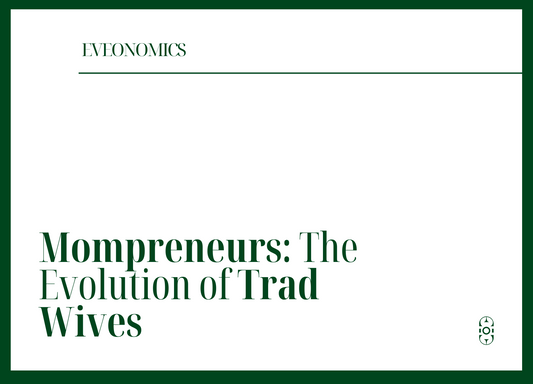In the world of financial narratives, there’s often a stark difference between the glittering facade of riches and the quieter, more enduring essence of wealth. And while being rich might flash brightly in the spotlight, wealth—true wealth—exists in the shadows, steady and unshakable. This week in Journey to Wealth, we’re unpacking the complexity of wealth, a subject that has gripped the minds of the financial literati for centuries, and one that Morgan Housel deftly tackles in The Psychology of Money. But let’s not just gloss over numbers; this is about behaviour, discipline, and the ability to build something that lasts.
Rich vs. Wealthy: An Uneasy Relationship
First, let's establish the difference. Richness is loud—marked by flashy cars, expensive homes, and a constant display of spending power. It’s living in the moment, driven by high income. Wealth, however, whispers. It’s the portfolio of assets quietly growing behind the scenes: stocks, bonds, property, and investments that don’t need constant attention but are always working for you. Wealth gives you options—freedom, if you will—something a high salary can never guarantee. It’s the difference between having something and being something.
Housel’s philosophy underscores that wealth isn’t about how much you make, but how much you keep. And what you do with what you keep? That’s where things get interesting. If you're simply trading hours for dollars, you might feel rich, but wealth—real, sustainable wealth—comes from leveraging your assets to generate more income than you ever could by working alone.
Wealth Is a State of Mind!
Housel’s work is built on a simple yet profound truth: financial success is more about behaviour than technical know-how. Think about it—how many times have we seen financial empires crumble not because someone didn’t understand the market, but because they couldn’t control their impulses? Those who sustain wealth over generations aren’t necessarily the ones with MBAs from Ivy League schools. They’re the ones who’ve mastered patience, consistency, and, most critically, restraint.
The temptation to spend lavishly in the present often drowns out the future benefits of saving and investing. Yet, it’s those small, thoughtful financial decisions that build wealth—decisions like consistently saving a portion of your income, even when it’s tempting to spend. Housel emphasises that the real power in wealth-building comes not from genius, but from behaviour: sticking to the plan even when the market is volatile, investing long-term, and maintaining emotional control.
The Power of Assets and Passive Income
To truly understand wealth, you need to grasp the importance of assets and passive income. Riches come from active income—your salary, bonuses, the direct result of your labour. But wealth stems from assets: things that generate income on their own, whether you’re working or not. Passive income is your ticket out of the daily grind, and it’s a concept that’s often misunderstood.
Consider this: while working your nine-to-five, you might feel financially comfortable. But what happens when you stop? That’s where assets step in. Think real estate properties that generate rental income, stocks that pay dividends, or businesses that run themselves. These are the building blocks of true wealth. And you don’t need millions to start. Everyday people can build wealth by acquiring assets, slowly and steadily over time.
Everyday Strategies: Building Your Own Wealth Portfolio
Here’s where we take the discussion out of the boardrooms of Wall Street and into your living room. You don’t have to be a millionaire to start adopting the strategies of the wealthy. Let’s break down some everyday practices:
- Invest in Assets: Start by investing in things that grow over time—whether that’s a stock portfolio, real estate, or a business venture. You don’t need huge sums to begin. Platforms like index funds or ETFs offer opportunities to diversify and build assets, even with smaller amounts.
- Start Small but Start Now: Wealth-building isn’t about getting it perfect right away. It’s about consistency. Automate a portion of your paycheck into a savings or investment account. Let it grow while you focus on living your life.
- Avoid Lifestyle Inflation: Just because you’re earning more doesn’t mean you need to spend more. Resist the urge to upgrade your lifestyle with every pay raise. Wealthy individuals keep their expenses lower than their income to continue building wealth.
- Take Calculated Risks: The wealthy don’t shy away from risks, but they do calculate them. Whether you’re investing in stocks or buying property, ensure that your decisions are backed by research and align with your financial goals.
Managing Risk and Staying the Course
It’s easy to get caught up in the excitement of potential wealth, but let’s not forget one essential factor: risk. Wealthy individuals understand that the market isn’t always steady, and fortunes can fluctuate. What sets them apart is their ability to manage that risk without panicking. Diversify your assets, so you’re not reliant on one stream of income, and learn to be patient.
And that’s the key—patience. Building wealth doesn’t happen overnight, nor should it. Those who stick with their financial plan, invest consistently, and stay the course through the market’s ups and downs are the ones who eventually find themselves wealthy, not just rich.
Legacy Planning: Wealth That Outlasts You
True wealth doesn’t end with one generation. One of the most profound differences between being rich and being wealthy is the ability to create a legacy. Estate planning, trusts, and smart tax strategies ensure that your wealth benefits future generations. While everyday individuals may not see themselves as "wealthy" in the traditional sense, these strategies are accessible to everyone. Creating a will or trust ensures your wealth, no matter how small, passes down to your children or chosen beneficiaries.
The Takeaway: Redefining Wealth on Your Terms
Wealth isn’t just a number in a bank account. It’s the freedom to live life on your terms, the security that comes with knowing your assets are working for you. It’s the ability to provide for your family without the fear of what happens if the paycheck stops coming in. And most importantly, it’s attainable for anyone willing to adopt the behaviours of long-term thinking, patience, and consistency.
So, whether you’re just starting on your financial journey or you're looking to refine your strategy, remember: wealth is built slowly, with intent. The key is to keep going, to understand that every small decision counts toward the bigger picture. You’re not just working for money—you’re making your money work for you. And that’s the true complexity—and beauty—of wealth.
Now, take a moment to reflect on your financial mindset. Are to working towards being rich or wealthy? Comment below and share your thoughts.
*This article is for general information purposes only and is not financial advice. We are not licensed financial advisors. Please consult a qualified professional before making any investment decisions to ensure they fit your specific financial situation.





